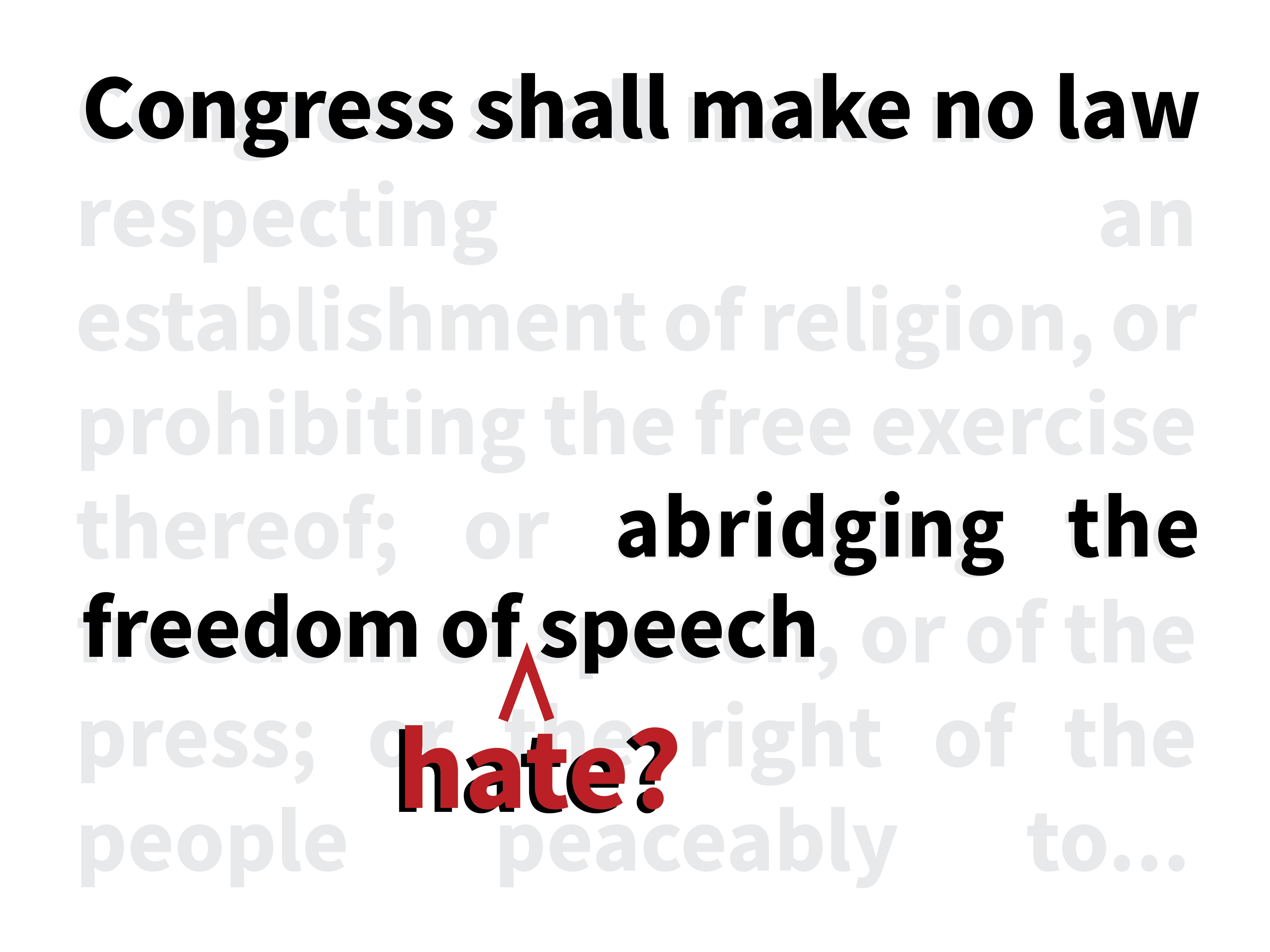Free speech is a pillar of democracy. It fuels debate, promotes freedom and ensures diverse viewpoints. With that said, there’s a point where speech ceases to be a tool for communication and becomes a weapon.
In a world where words can go viral within seconds, we have to acknowledge a line drawn around hate speech exists to protect not just public order, but the dignity and safety of marginalized communities.
The idea that free speech should be limitless is flawed. Even the most libertarian defenders of speech restrict some forms of expression, such as spam and harassment, for the greater good. Why, then, should hate speech, words that incite discrimination and harm, be treated differently?
Hate speech laws are not intended to censor — they are meant to ensure everyone enjoys the right to freedom from fear and discrimination. In a society where hateful rhetoric is often excused, marginalized groups do not always receive that necessary protection. If we aim to create safe and inclusive environments for all citizens, we must recognize speech promoting hatred directly opposes that goal.

The notion that limiting one form of speech will lead to authoritarian censorship is often an overstated slippery slope fallacy. There is a difference between regulating speech to prevent harm and silencing unpopular opinions. The idea that restricting hate speech will lead to the downfall of free expression ignores the consequences of uncontrolled hate speech.
The United States Supreme Court has acknowledged that speech can be restricted when it crosses certain boundaries. In Brandenburg v. Ohio, a landmark case that stressed the boundaries of speech, justices ruled that incitement of imminent lawless action is not protected speech. Silencing dangerous, divisional statements and dehumanization is not a downfall of democracy — it is a necessary step towards justice.
Free speech is essential, but it is not absolute. When speech becomes a tool to harm others or incite violence, it is no longer a right that society must protect. Democracies thrive when freedom is balanced with responsibility, and part of this balance is recognizing the need for limits on hate speech. We must reject the notion that all speech is equally valid and deserving of protection, especially when it threatens the safety and dignity of others.
It’s time to abandon the myth that hate speech is an unfortunate side effect of liberty that should be tolerated. The freedom to live without fear, discrimination or violence can only exist when society takes a stand against hate.
Let us remember: Our words hold power. They can uplift or destroy. As engaged citizens, we must advocate for a society where dialogue can thrive without compromising the well-being of others. We must strive for a future where the freedom to speak does not infringe upon the freedom to live without fear.
Together, let’s work toward a world where every voice can be heard without the shadow of hate looming over it.













































































































